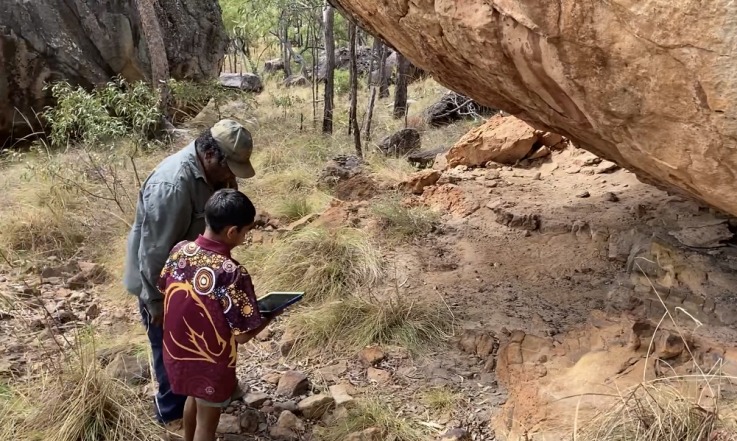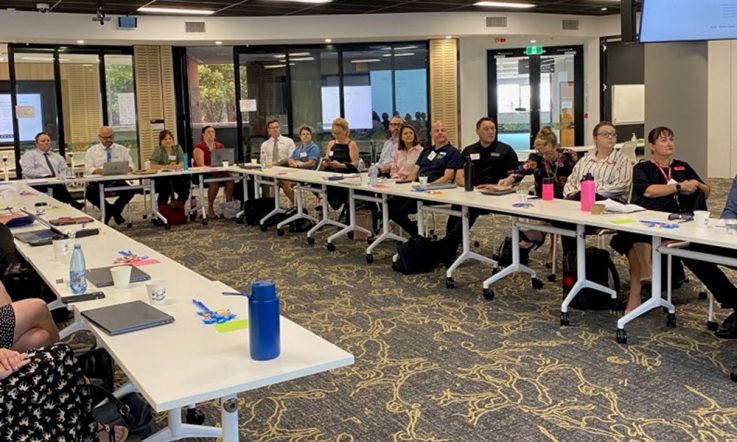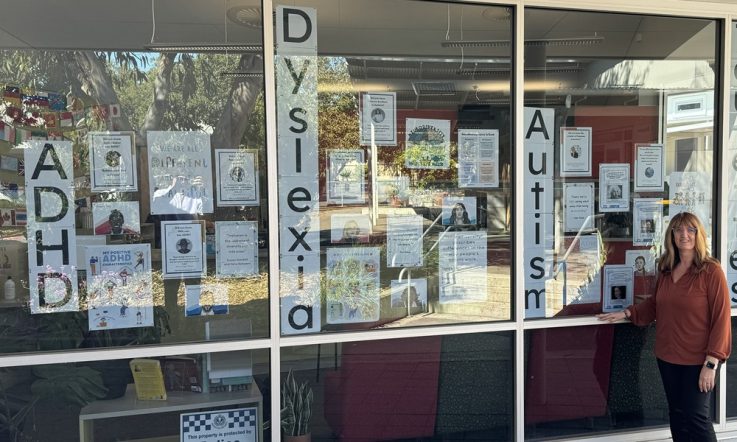The winners of the Teacher Awards 2024 have been announced. In today’s article, we chat with the executive team at Cessnock High School in NSW, winners of our Leadership Award for Driving School Improvement.
At Cessnock High School in New South Wales, things are quickly on the up. Their HSC results improved by more than 50% in 2022, and in 2023 they achieved their first Band 6 result. They also ranked first in the Hunter region, and 11th in NSW, for Year 7 to 9 NAPLAN growth in 2023.
That turnaround has been huge for a school that is one of the most disadvantaged in NSW and, up until recently, was dealing with academic and behavioural challenges.
‘We're seeing the results [of our work] and we're seeing it at HSC level, [in] NAPLAN improvement, but [also in] school attendance and positive engagement in school, so [fewer] behavioural issues, or negligible now almost in terms of behaviour concerns, and more and more kids engaged,’ Cessnock High School Principal Peter Riley tells Teacher.
It's results such as these that led Riley and the executive team of Belinda Cooper, Leah Watts, and Eiza Lewis to be named winners of our Leadership Award for Driving School Improvement by our Judging Panel.
Open to a school leadership team, or individual member of a leadership team, the award celebrates excellence in creating, implementing, and continuing to drive and reflect on strategic improvement plans. This year, the Judging Panel were impressed by the extensive list of positive outcomes that are already arising from the work of Cessnock High School’s executive team in improving student learning, teacher wellbeing, and school culture.
‘We’ve done a lot of work here and continue to put a lot of work in and it’s certainly nice [for] my team to gain some recognition …’ says Riley.
Setting a vision
One aspect Teacher Awards judges look for in this category is a commitment to attracting, retaining and developing high-performing teachers. When Riley arrived as principal in 2019, he quickly set about engaging the University of Newcastle’s Teachers and Teaching Research Centre (TTRC) to help set a plan for Cessnock High School.
‘I had prior experience with the [TTRC] team at my previous school and … we saw an improvement in data there … so I was the one who approached them to say, “what do you think we can do here?”’
Cessnock High School worked with the TTRC to develop a 4-year Quality Teaching Action Plan which involved shifting the school’s culture to centre on delivering a consistently high-quality teaching and learning environment. That meant that teachers had the knowledge and resources to be their best, and that students were supported with everything they needed to learn.
Of course, getting students through the school gates was the first step – an area staff also worked on.
‘The [executive] team had been working on trauma-informed practice with their staff to improve their ability to engage with … our kids who come from complex backgrounds. So, making sure that we can engage those kids to, first of all, come into the school gates and then engage with learning,’ says Riley.
The Leadership Award for Driving School Improvement recognises effective communication of improvement strategies, targets, and progress to all stakeholders. Eliza Lewis says engaging families, many of whom may not have had positive experiences with the wider education system themselves, has also helped drive an improvement in school culture.
‘Without those families on board all those things we worked on … aren’t possible …’
By supporting students and their families to engage with schooling, and by delivering a high-quality learning environment once they get there, Riley says they could then implement a culture of high expectations.
‘By providing [students] with all the resources they need, whether it be educational or [for] wellbeing … and then making sure our focus is on educational outcomes and intellectual quality, training our staff to be the best teachers that they can be … there’s no excuse not to learn.’
A focus on professional learning
Judges were also looking for a commitment to leading and modelling professional learning. To ensure all staff were delivering consistent, quality teaching, TTRC ran Quality Teaching Rounds (QTR) with staff. This included any new staff who joined Cessnock High School.
Through QTR, staff could refine their knowledge and teaching practice to provide the best learning environment for their students. In addition to these initial Quality Teaching Rounds, TTRC presents new research findings regularly and engages staff in ongoing professional learning sessions. The school has also worked with TTRC to review how their assessment tasks could be improved, provide middle-leader workshops, and more.
It also provided dedicated time for staff to work together and learn from each other.
‘[QTR gave] them a forum to talk about different research that they may have picked up. And then they would observe lessons, and they would talk about teacher practice, get feedback on their own practice and be able to provide feedback to other people. So, you get a little bit of more of an open experience with self-learning from other staff and things like that,’ says Cooper.
‘… the focus has always come back to quality teaching and what it looks like in the classroom,’ adds Watts.
Improving teacher wellbeing
While their implementation plan has led to improvements in teaching and, subsequently, student learning, the executive team knew it was also important for teachers to be on board – something that has been measured across surveys and staff meetings.
‘It allowed us to track things like teacher morale and teacher burnout … Were we going too hard, was it too much, do we need to back off and narrow our focus?’ says Riley. ‘… that data was really important to [see] what they thought, whether they were getting enough decision making or not and did we know that. Whether they thought that what we were doing was worthwhile…’
According to the team, who finished up a data-revision session just moments before we spoke, ‘basically [all metrics] have increased over time.’
‘Some of our achievements [have been] really affirming for our staff. That hard data [such as improved NAPLAN results] to go… “This is working” rather than just to feel that the place is getting better or we're doing better,’ Riley adds.
Transforming school culture
While the staff at Cessnock High School transformed their learning environment, staff were also faced with improving a school culture that was struggling with behavioural challenges.
In addition to building their staff’s trauma-informed practice and working to better connect with students, the team aimed to engage the wider community in the journey – opening up the school for more events, regularly engaging through newsletters and social media, and creating a safe space for families.
According to Lewis, they’ve also focused on improving that relationship from the very start, ‘working with families at the beginning, when students are in year 6 heading into year 7’ to make the transition to the school smoother.
Again, the data says it’s working. As described in their Teacher Awards nomination, in 2023, student attendance and engagement grew by 7% (triple the average across the state), and positive behaviour referrals were also up 130% while negative behaviours significantly decreased. Even the little things, like the number of students wearing the uniform, has improved.
‘… to me, that's a real sign of school culture,’ says Riley.
The Teacher Awards will be back for 2025! The Awards recognise work that’s been completed in the past 12 months, so it’s not too early to start thinking about your nomination for next year. You can browse the specific criteria for this award, and the other 7 categories, here.
A student’s home environment can play a big part in their ability to learn at school. Do you engage with families to form positive relationships and to ensure everyone is working together towards the same goals?
Alongside driving big changes for school improvement, the executive team at Cessnock High School regularly engaged with staff to see how they were feeling – were they being asked to do too much, did they feel the changes were worthwhile etcetera. As a school leader, do you regularly consult with staff to gauge their feelings towards changes at the school?



